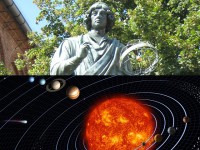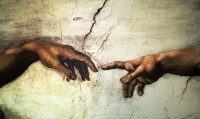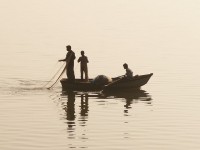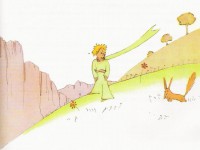(最低の失敗と同様)…

(最低の失敗と同様)最高の功績に対する両義性を自覚することは、明らかな円熟の兆しである。 – パウロ・ヨハニス・ティリヒ[パウル・ティリッヒ] (1886 – 1965) More »

(最低の失敗と同様)最高の功績に対する両義性を自覚することは、明らかな円熟の兆しである。 – パウロ・ヨハニス・ティリヒ[パウル・ティリッヒ] (1886 – 1965) More »

最大多数の最大幸福こそが、道徳及び法の基礎である。 – ジェレミー・ベンサム (1748 – 1832) More »

最終的に人類は、地球ではなく太陽を宇宙の中心と見るようになるだろう。諸事象の規則的進行や全宇宙の調和の中に、この真理は遍く暗示されている。あとはただ我々人間の側が、現実に向き合うかどうかだ。「目を開く」ことである。 – ニコラウス・コペルニクス (1473 – 1543) More »

「些細な(ささいな)ことが作品を完璧にする」ものだが、だからと言って「作品を完璧にするのは些細なこと」とはならぬ。 – ミケランジェロ(・ブオナローティ) (1475 – 1564) More »

才能が有るということと才能の使い方が分かるということは、別問題だ。 – ロジャー・ミラー (1936 – 92) More »

寝ている子を起こすな。(日本の諺) / 藪をつついて蛇を出すな。[やぶへび。](日本の諺) / 触らぬ神に祟りなし。(日本の諺) / 眠っている犬は寝かしておけ。 / 寝ている犬を起こすのはよくない。 More »

最上の幸福は、幸福である必要はないと知ることである。 – ウィリアム・サロイアン (1908 – 81) More »
![IMAGE: The die is cast. [The die is thrown.] [(La.) Alea iacta est.]](https://www.ok312.net/wp-content/uploads/2014/10/caesar-203509_dice-18208_bridge-192982_640-200x133.jpg)
賽(さい)は投げられた。 – ジュリアス・シーザー[カエサル] (紀元前100頃 – 前44) / (彼がルビコン川を渡る時の言葉。もはや後には退けない(ひけない)こと、元には戻れないこと。) / ルビコン川を渡る。 / 弦(つる)を放れた矢。(日本の諺) More »

魚を一尾分けてもらえれば今日一日食べていける、魚釣りを教えてもらえれば残り一生食べていける。 More »

「さようなら」とキツネは言った。「お別れにとっておきの秘訣を、とっても簡単なヒケツだよ、いいかい? 心でしか、正しくものを見ることはできない。肝心な点は目には見えない」「かんじんなてんは、めにはみえない」、王子さまは忘れないように繰り返した。「薔薇に世話を焼いた分だけ、その薔薇はきみにとって大切なものになる」「ばらにせわをやいたぶんだけ、このばらはぼくにとって――」、王子さまは忘れないように声に出した。 – サンテグジュペリ (1900 – 44): 『小さな王子さま[星の王子さま]』第21章 More »